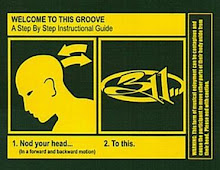This act made it easier for the government to seize drug offenders' assets (houses, boats, cars, money, etc.), allowed the president to increase tariffs (taxes on imports) on products from countries that do not cooperate with the U.S. efforts to stop drug imports into the United States, and created the first laws against money laundering, or moving illegally obtained money (such as drug sale proceeds) into or out of bank accounts. Most importantly, this bill reinstated mandatory drug sentences by defining the amounts of various drugs that it believed would be in the hands of drug kingpins and high-level dealers.
In order to curtail trafficking, Congress enacted mandatory ten-year sentences for possession of 1000 grams of heroin and 5000 grams of powder cocaine and mandatory five-year sentences for 100 grams of heroin and 500 grams of powder cocaine with each level doubling for prior convictions. Reagan also proposed a 20 to 1 ratio for crack cocaine versus powder cocaine, but House Democrats raised the ratio to 50 to 1 and Senate Democrats raised it 100 to 1. Therefore, possession of 50 grams of crack merits a ten-year minimum sentence and 5 grams of crack triggers a five-year minimum sentence, whereas trafficking 50 grams of powder cocaine carries no mandatory sentence.
Congress justified this sentencing disparity by stressing the serious social harms with which crack use was associated. That summer the media was in a frenzy about the crack epidemic and the poor crack babies that were being born every day. Of course, we now know that cocaine is not associated with any pattern of defects. Nor does it produce infantile withdrawal, like opiates.
The intent of this act was to target drug kingpins, but the U.S. Sentencing Commission reports that only 5.5 percent of all federal crack cocaine defendants and 11 percent of federal drug defendants are high-level drug dealers. This is because the most culpable defendants are also the defendants who are in the best position to provide prosecutors with enough information to obtain sentence reductions - the only way to reduce a mandatory sentence. Low-level offenders often end up serving longer sentences because they have little or no information to provide the government.
These mandatory minimums have shifted decision-making authority from judges, who now operate on the bench without accountability in these cases. These sentences have also sent a record number of women and people of color to prison, causing extreme overcrowding in our detention system - more than 80 percent of the increase in the federal prison population from 1985 to 1995 was due to drug convictions and in 2004 the Bureau of Justice Statistics reported that 55% of all federal prisoners were convicted on drug crimes. Most importantly, the U.S. Sentencing Commission and the Department of Justice have both concluded that mandatory sentencing fails to deter crime.
Yet, these laws remain on the books.
The title quote is from Keith Richards.

No comments:
Post a Comment